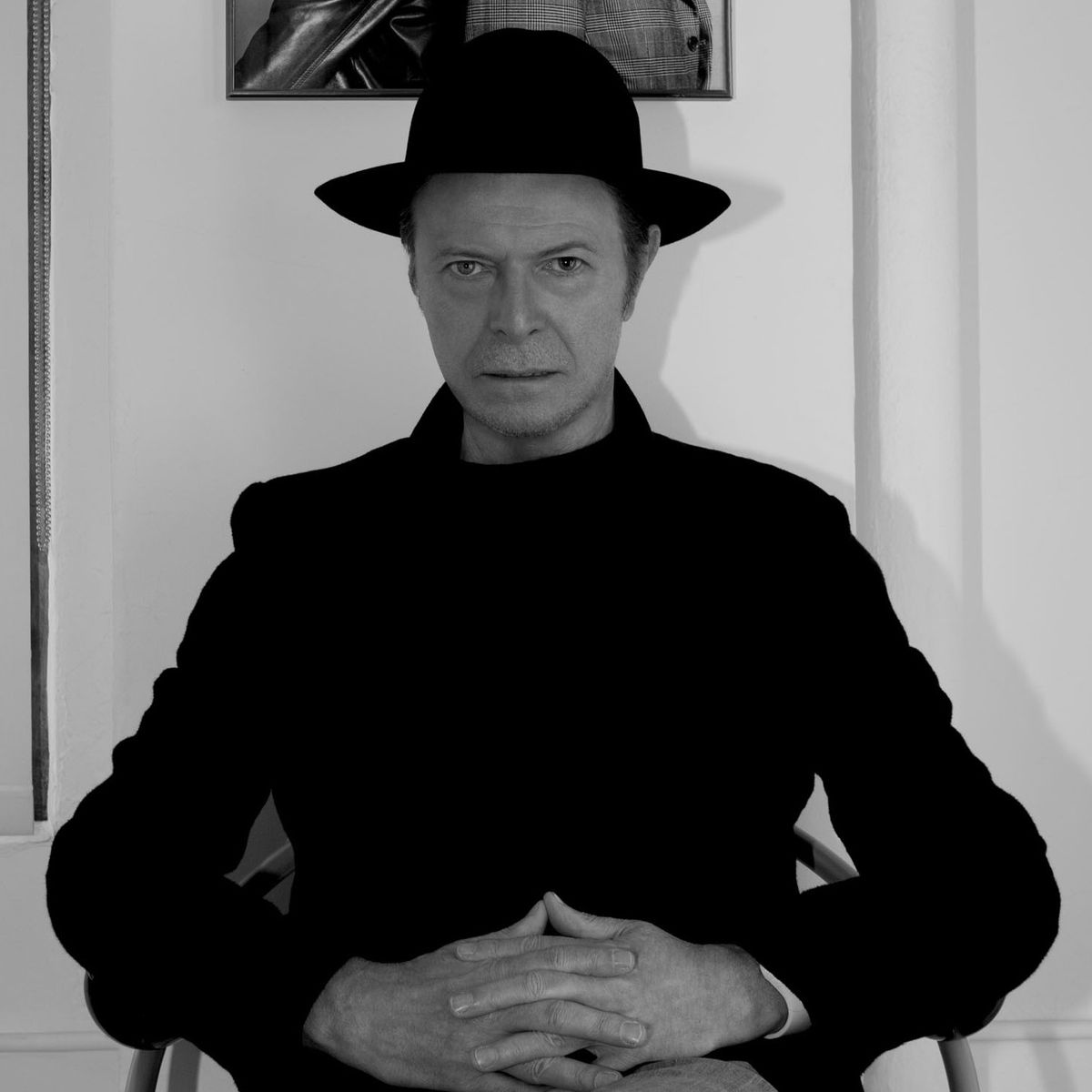"The Thin White Duke" Strikes Again

In late January, I remember scratching my head in elation when I heard that David Bowie, the famously press-shy, eccentric whirlwind of a musician who all but promised us he would never release new music again, announced a new album, “The Next Day.” It was due in March (only two months away!), and a song was made immediately available with no prior announcement.
I thought I would have to wait until its proper release date of March 12 to enjoy it, but Bowie, proving his marketing skills may very well match his skills on record, let loose the whole album a few weeks early through streaming on iTunes. You can’t buy any songs, but you can hear all of them, and I’m about as glad as I could be that I took advantage of that option. British newspaper “The Independent” referred to “The Next Day” as “the greatest comeback album in rock ’n’ roll history.” While that sounds a little hyperbolic, the album may just live up to that statement, and not only because there aren’t many great comeback albums in rock ’n’ roll. Judging it on its own merits, it’s exactly what Bowie needed to deliver in 2013, even though I’m not sure anyone knew exactly what that was before the album’s creation. Simply put, it’s terrific, easily the best album released in months and Bowie’s finest album in many, many years. Bowie’s creation reminds us how important and singular a talent he is: “The Next Day” feels rooted in his past yet is entirely appropriate for the present. The album, like the man, is timeless, and it’s about as fantastic a way to kick off 2013 (if a couple months late) as I can think of.
An album whose lyrics manifest an obsession with old age and the past, “The Next Day” immediately reminds us that Bowie, for all his arty tendencies, has always been a rocker at heart in the weirdest sense of the term. The title track kicks in with that same angular guitar the original-hipster is known for and in 2013 it’s comforting yet disconcerting, as though we’ve regained an old, forgotten friend whom we didn’t ever expect to return. One track, “The Stars (Are Out Tonight),” reminds us that, to Bowie, there’s really no difference between the outer space in which he spent his past or the suburbia in which he lives his present life. And that’s one of the most fascinating aspects of the album really, both lyrically and musically. It’s pop to be sure, but it’s pop as only David Bowie could deliver it, twisted and contorted, cut up, devoured and spit out, into something that barely resembles its original incarnation.
The second song, “Dirty Boys,” pays tribute to post-Bowie art rockers in an age where it’s no longer relevant to point out what is post-Bowie. The track is a dead-on rendition of a Tom Waits song, complete with sultry, slinky horns and piercing guitars that jab into the night. It would have fit right in on Waits’ terrific “Bad as Me” two years ago, and it fights right in on this album too.
Bowie lands a knockout with the aforementioned “The Stars (Are Out Tonight),” one of his finest songs ever. With a classic Bowie vibe and insightful lyrics about stardom, both past and present, he croons about where he sees himself now and how he copes with fame. It’s truly terrific stuff, and the song’s intense, rocking yet hushed groove contributes well to the Bowie legend.
“Love is Lost” slips only slightly, with piano straight out of a dozen classic horror films, though Bowie manages to turn it into something else entirely. It’s creepy, but there’s also the faintest aura of love and hope still remaining amidst the dire loneliness the title suggests. It’s fitting then that “Where Are We Now,” a simultaneously lush yet stark mid-tempo ballad in Bowie’s late 1970s “Berlin Period” style, has lyrics whose detail evokes the separation of Berlin and its efforts to regain a sense of togetherness. It maintains the lonely/lovely dynamic of the previous song, with some evocative tribal-sounding drums.
The Thin White Duke then delivers “Valentine’s Day” as a respite from the darkness, at least musically speaking. While his lyrics are as ambiguous as ever and suggest a less cheery theme, this poppier number, with its grungy guitars and some propulsive percussion, seems capable of brightening one’s day. But again, it’s Bowie, so he turns what would be a fairly straightforward song into a sumptuous cocktail of bitterness and hope.
At the risk of going on too much about every song (because every song here deserves it), I’ll briefly discuss the album’s solid core. “If You Can See Me” is one of his artiest songs on the album, with Christmas bell-synths with an icy vibe that contrasts with the fire-spewing Bowie and the tribal drums designed to set your feet ablaze. “I’d Rather Be High” has a classic rock sound that’s a little doo-woppy, with ringing guitars and a psychedelic vibe reminiscent of the artist’s earliest stuff emerging out of the Summer of Love. “Boss of Me” has a jazzy vibe with some slick horns and plenty of snapping. It’s catchy, but it’s outdone by “Dancing Out in Space,” which has a four on the floor rhythm and is reminiscent of his earlier hit “Golden Years.”
As the album moves into its home stretch, “How Does the Grass Grow” proves it shows no signs of stopping with its warped, spacey guitar intro and some great, bluesy guitar interjections. As if taking on a challenge, this song also manages the seemingly impossible task of making a chorus composed almost entirely of the word “yeah” sound cool. “(You Will) Set the World on Fire” is another highlight, a hard hitting, rocking, intense number with a stomping riff and biting, sarcastic lyrics. “You Feel so Lonely You Could Die” is its stark opposite, reminding me of “Hallelujah” by Leonard Cohen, so much so that I wouldn’t be surprised if the song was Bowie’s inspiration.
Album closer “Heat” is an appropriately stately and melancholic finale in which Bowie repeatedly questions who he is now, at 66 years of age. As “The Stars (Are Out Tonight)” reminds us, one answer would be: exactly what he’s always been, regardless of his attempts to change. Lucky for us, that happens to be one of the finest, strangest and most electrifying musicians of the last 40 years. Many would call Bowie a born star, and he damn sure proves it with this album.





Comments ()